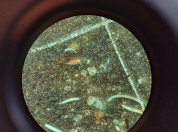Search
27 search results
Search results
-
Greenhouse gases
Climate change is amplified by greenhouse gas emissions. At NIOO, we work on the fundamental understanding of how gases such as methane, carbon dioxide and nitrogen dioxide influence ecosystems. Our knowledge of carbon and nitrogen cycles provides insight into the potential of greenhouse mitigation tools. In a Dutch freshwater lake or the soil of a tropical rain forest.
-
Costs of scaring grass-eating barnacle geese often outweigh the benefits
At the current population sizes, the practice of scaring geese off pastures in the province of Friesland probably ends up costing more than it saves. Ecologist Monique de Jager and colleagues from the Netherlands Institute of Ecology (NIOO-KNAW), Utrecht University, Wageningen University & Research and the University of Amsterdam conclude this based on a model study, that was conducted as part of the Dutch contribution to European goose management. The results suggest that scaring geese is cost-effective only when there are few geese in the area.
-
The Centre for Soil Ecology goes national
Today, on World Soil Day, it is the perfect moment to present the new National Centre for Soil Ecology. All soil ecologists working in the Netherlands can now connect to the initiative that originally started in Wageningen.
-
Kick off meeting National Centre for Soil Ecology
The Centre for Soil Ecology (CSE) was established in 2010 by NIOO-KNAW and WUR to bring together soil ecologists in Wageningen. However, as soil ecology is happening all across the Netherlands, there is need to transform the CSE into a National Centre for Soil Ecology (NCSE) to connect soil ecologists across the Netherlands. -
Film 'Onder het Maaiveld' revisited - English version
To honour the International Day of Biodiversity, with NIOO soil ecologists for Q&A afterwards!
-
Enhancing Soil Biodiversity
At NIOO, we are on a mission to explore the strange world beneath our feet, to seek out new soil-borne life, uncover new miniature civilisations, and to boldly take humankind where it could not go before.
-
Soil biodiversity analysis for sustainable production systems (SoilProS)
SoilProS will interpret big data on soil biodiversity, soil chemical and physical characteristics with respect to current and desired soil functions, and how to use this information in order to help farmers predicting which crop varieties, seed mixtures, (organic) fertilizers, soil inocula, and organic substrates enhance the environmental sustainability of their activities.
-
Is agroforestry the answer for rainforest restoration?
The conversion of Amazon rainforest for agriculture has led to deforestation and soil degradation. Agroforestry has been suggested as a sustainable alternative, but NIOO's Eiko Kuramae says its impact on the soil needs to be more fully considered.
-
The relationship between yield loss and grazing pressure: implications for goose management
Grazing by geese can cause a lot of damage to agricultural crops. Goose management aims to reduce such damages, for example by actively reducing population sizes.
-
More grazing geese does not always mean less harvest
An international team led by the Netherlands Institute of Ecology (NIOO-KNAW) looked at the impact of different goose species and the number of geese on agricultural damage in the province of Friesland.
